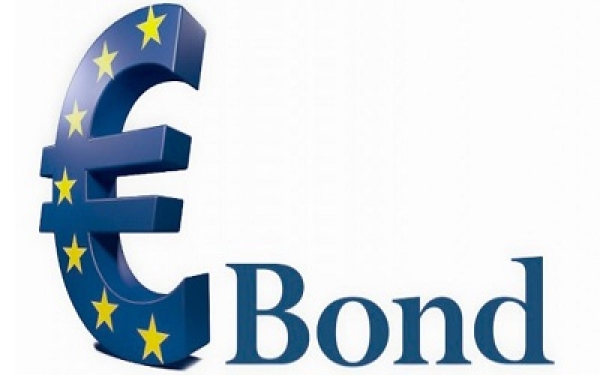International holders of Ghana’s Eurobonds have constituted bondholder creditor committee in response to Ghana’s announcement suspending certain categories of external debt pending an orderly restructuring of the affected obligations.
It includes Eurobonds, commercial loans and most bilateral debt.
The suspension is an interim emergency measure pending future agreements with all relevant creditors.
According to Finance Ministry, the suspension will not include the payments of multilateral debt and new debts whether multilateral or otherwise contracted after December 19, 2022 or debts related to certain short term trade facilities.
A statement explained that government is evaluating certain specific debts related to projects with the highest socio-economic impact for Ghana which may have to be excluded.
Diverse group of institutional investors
Ghana’s Eurobonds Committee is representative of a diverse group of institutional investors including mutual funds, asset managers, insurance firms, hedge funds, and family offices.
Steering Members of the Committee
Steering Members of the Committee include the following holders (acting either directly or for and on behalf of the funds or the accounts they manage): Abrdn, Amundi (UK) Limited, BlackRock, Greylock Capital Management, Ninety One.
Legal and financial advisors
The Committee has appointed Orrick, Herrington and Sutcliffe LLP as legal advisor and Rothschild and Co as financial advisor.
Focus of the Committee
The Committee is focused on the orderly and comprehensive resolution of Ghana’s debt challenges, recognizing that such resolution will require fair burden-sharing and collaboration among the Ghanaian authorities, private creditors (both domestic and international) and official sector creditors.
Committee welcomes engagement with IMF
According to a statement, the Committee welcomed Ghana’s ongoing engagement with the International Monetary Fund (IMF) and the recent announcement of the Staff Level Agreement.
Avoiding unilateral actions
The Committee notes that a process of good faith negotiation would avoid unilateral actions and would require, inter alia, the timely exchange of detailed economic and financial information among the committee, the Ghanaian authorities and the IMF, and would need to be anchored in reasonably feasible economic adjustment by the Ghanaian authorities.
Fair Debt Restructuring
In this regard, the Committee endorses the Institute of International Finance’s Principles for Stable Capital Flows and Fair Debt Restructuring, which provide meaningful guidance for successful sovereign debt restructurings.
The Committee stands ready for a swift engagement on that basis.
Outcomes equitable to creditors and Ghana
The Committee aims at securing an outcome that is both equitable to creditors and responsive to the economic and social challenges facing Ghana.
A key factor in measuring the success of Ghana’s debt resolution would be the timely restoration of international market access, which remains critical for Ghana to meet its development objectives.
A statement from the Ministry of Finance announcing the suspension said financial resources including Bank of Ghana’s international reserves are limited and needed to be preserved at this critical juncture.
Last week, $3 billion IMF staff-level agreement
Ghana and the International Monetary Fund (IMF) have reached staff-level agreement on economic policies and reforms to be supported by a new three-year arrangement under the Extended Credit Facility (ECF) of about $3 billion.
Engaging external creditors
Government committed to engaging in discussions with all of its external creditors to make Ghana’s debt sustainable through a fair, transparent and comprehensive debt restructuring exercise in line with international best practices.
Exogenous factors
The COVID-19 pandemic, rising global food prices, rising crude oil and energy prices; and the Russia-Ukraine war adversely affected Ghana’s macroeconomy, with spillovers to the financial sector.
The combination of adverse external shocks exposed Ghana to a surge in inflation, a large exchange rate depreciation and stress on the financing of the budget, which taken together have put public debt on an unsustainable path.
Public debt is unsustainable
The latest debt sustainability analysis demonstrated that Ghana is faced with a significant financing gap over the coming years revealing that public debt is unsustainable.
GH¢467.4bn public debt stock
Out of the GH¢467.4 billion total public debt stock as of October 2022, domestic debt was GH¢195.7 billion while external debt represents GH¢271.7 billion.
Public Debt is 75.9% to GDP
This represents approximately 75.9% of Gross Domestic Products (GDP) and the debt restructuring measures target to bring it down to 55% in the medium term.
Total public debt stock exceeds 100% of GDP
Total public debt stock, including that of State-Owned Enterprises and all, exceeds 100% of Gross Domestic Product (GDP).
GH¢52.6bn interest payment
Projected interest payment on GH¢467.4 billion sovereign debt for 2023 is estimated at GH¢52.6 billion.
Debt servicing absorbs more than half of total govt revenues
Debt servicing is now absorbing more than half of total government revenues and almost 70% of tax revenues.
A total of GH¢137 billion of the domestic is being repackaged in a debt exchange programme but the total amount of external debt on which interest payment has been suspended has not be stated.
50.3% inflation
The economy has suffered significantly since early 2022 with inflation rising from 13.9% in January to 50.3% in November.
Source: thefinderonline.com





